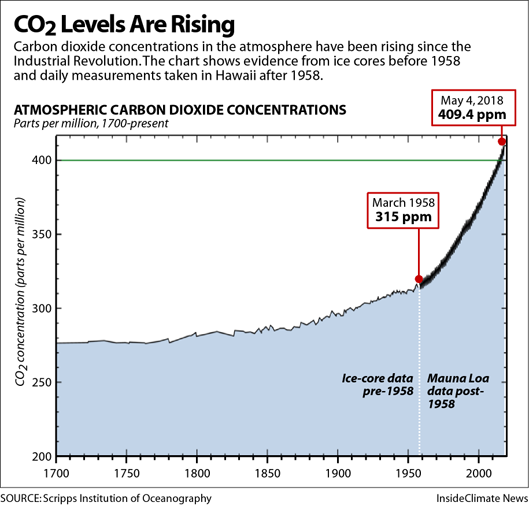Climate Change Basics

Mark, the answer is available in every junior high and high school science book in the United States, probably on the planet, given that world’s only political party that denies the scientifically accepted theory of climate change exists in the U.S. Caveat: at least that’s the case with today’s schoolbooks; Koch Industries and other similar groups are spending hundreds of millions of dollars annually to eliminate this aspect of science.
In brief, the answer goes like this: Before the Industrial Revolution there was an even balance between the production and absorption of CO2, and its concentration as a component of our atmosphere stayed steady at about 280 parts per million. Since that time, largely due to human combustion of hydrocarbons, especially fossil fuels, there has been an ever-widening imbalance, and the concentration has risen (as shown the chart above); it current stands at 413 PPM.
CO2 is what’s known as a greenhouse gas, meaning that it traps some of the heat that would have reflected off the Earth’s surface back into space. So far, this has resulted in an average increase in atmospheric temperatures of about 1°C. Scientists have warned us that our civilization needs to reduce CO2 emissions sharply in order to limit this rise to 2°C, an increase that will not cause too much harm. The problem is that a “business as usual” approach will result in a 4.5°C increase, that will mean catastrophic storms, droughts, famines, water shortages, wild fires, and loss of land due to sea-level rise.
To answer your question, we don’t need to remove CO2 from the atmosphere; we need to slow the rate at which we’re emitting more.
A far more detailed explanation is available in the books mentioned above. While you’re at it, you might also want to come up to speed on grammar and capitalization.
